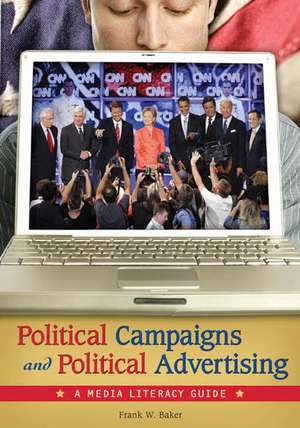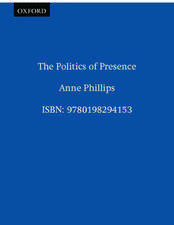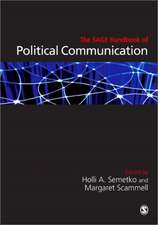Political Campaigns and Political Advertising: A Media Literacy Guide
Autor Frank W. Baker Cuvânt înainte de David Considineen Limba Engleză Hardback – 3 iun 2009 – vârsta până la 17 ani
Preț: 206.75 lei
Preț vechi: 351.09 lei
-41% Nou
Puncte Express: 310
Preț estimativ în valută:
39.56€ • 41.31$ • 32.67£
39.56€ • 41.31$ • 32.67£
Carte tipărită la comandă
Livrare economică 16-30 aprilie
Preluare comenzi: 021 569.72.76
Specificații
ISBN-13: 9780313347559
ISBN-10: 0313347557
Pagini: 224
Ilustrații: 46 bw illus
Dimensiuni: 178 x 254 x 20 mm
Greutate: 0.64 kg
Editura: Bloomsbury Publishing
Colecția Greenwood
Locul publicării:New York, United States
ISBN-10: 0313347557
Pagini: 224
Ilustrații: 46 bw illus
Dimensiuni: 178 x 254 x 20 mm
Greutate: 0.64 kg
Editura: Bloomsbury Publishing
Colecția Greenwood
Locul publicării:New York, United States
Caracteristici
Sidebars highlighting critical thinking/viewing questions; key definitions, facts, dates, and data; telling but offbeat and entertaining trivia
Notă biografică
FRANK W. BAKER is a nationally recognized media literacy consultant and the webmaster of Media Literacy Clearinghouse, a respected media literacy resource Web site. He has worked in television news and as an administrator for instructional television and distance learning in the Orange County (Orlando), Florida, public school system. He is the author of Coming Distractions: Questioning Movies (2007), an introduction to media literacy for elementary students.
Cuprins
ForewordAcknowledgmentsList of IllustrationsTimeline: A History of the Media and PoliticsIntroductionChapter 1 Media Literacy: Understanding the Meaning behind the MessagesChapter 2 Propaganda and Spin: The Power of the Image over the WordChapter 3 The Media ExpertsChapter 4 Analyzing PhotographsChapter 5 And Then There Was RadioChapter 6 Why Television?Chapter 7 Popular Appeals and Techniques of Persuasion in Political AdvertisingChapter 8 Analyzing Campaign EventsChapter 9 The Role of New Media and New Technology ToolsChapter 10 Trying to Fix the Money Problem in ElectionsGlossaryResources
Recenzii
. . . a highly recommended addition to academic and community library Political Science reference collections. . . . especially commended to the attention of the non-specialist general reader with an interest in the role media plays in American politics today.
The author uses clear and easy-to-understand language to examine and interpret the content of media messages in print, image and multimedia forms in an objective manner.
The book is well researched and extremely well written. It is indexed for ease of use and provides ample citations to back up his findings and for further research. Baker's authority is strong, and the work is free from obvious baas. The photographs, charts, and graphs are well rendered and add to the power of the book. The price is even reasonable. The amount of information presented would make this a great book for circulating as well as reference collections. It would be an excellent addition to the collections of large public libraries and academic libraries supporting programs in communication or political science, and is highly recommended.
The author uses clear and easy-to-understand language to examine and interpret the content of media messages in print, image and multimedia forms in an objective manner.
The book is well researched and extremely well written. It is indexed for ease of use and provides ample citations to back up his findings and for further research. Baker's authority is strong, and the work is free from obvious baas. The photographs, charts, and graphs are well rendered and add to the power of the book. The price is even reasonable. The amount of information presented would make this a great book for circulating as well as reference collections. It would be an excellent addition to the collections of large public libraries and academic libraries supporting programs in communication or political science, and is highly recommended.










